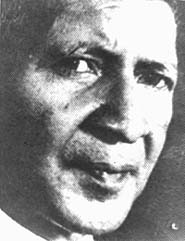A Brief Colonial History Of Ceylon(SriLanka)
Sri Lanka: One Island Two Nations
A Brief Colonial History Of Ceylon(SriLanka)
Sri Lanka: One Island Two Nations
(Full Story)
Search This Blog
Back to 500BC.
==========================
Thiranjala Weerasinghe sj.- One Island Two Nations
?????????????????????????????????????????????????Saturday, April 26, 2014
S J V Chelvanayakam: The Father Of The Tamil Nation

By Usha S Sri-Skanda-Rajah -April 27, 2014
In his light we shall travel…
Remembering some eventful moments in the life of Thanthai Chelva, of
historical significance to Eelam Tamils, looking through both A J
Wilson’s book: S J V Chelvanayakam and the Crisis of Sri Lankan Tamil
Nationalism and the late Nadesan Satyendra’s Tamil Nation web portal and from tributes at his death.
“Throughout the ages the Sinhalese and Tamils in the country lived as
distinct sovereign people till they were brought under foreign
domination. It should be remembered that the Tamils were in the vanguard
of the struggle for independence in the full confidence that they also
will regain their freedom. We have for the last 25 years made every
effort to secure our political rights on the basis of equality with the
Sinhalese in a united Ceylon…It is a regrettable fact that successive
Sinhalese governments have used the power that flows from
independence to deny us our fundamental rights and reduce us to the
position of a subject people. These governments have been able to do so
only by using against the Tamils the sovereignty common to the Sinhalese
and the Tamils…I wish to announce to my people and to the country
that I consider the verdict at this election as a mandate that the Tamil
Eelam Nation should exercise the sovereignty already vested in the
Tamil people and become free.”
Such were the evocative words spoken by S J V Chelvanayakam QC
MP (quote taken from Tamil Nation website) after he won the
Kankesanturai seat convincingly with a sweeping majority, having
resigned his seat in October, 1972 to re-contest his parliamentary seat
in September 1975 (in a by-election that the Sirimavo government
wilfully delayed) to seek the peoples’ mandate for Tamil Eelam.
Earlier, challenging the Sirimavo government’s
decision to establish a constituent assembly and formulate a new
constitution, Chelvanayakam took the “momentous decision” to submit
himself to the people’s will, “on the issue that the Tamil people had
rejected the 1972 constitution.”
A J Wilson writes in his book: S J V Chelvanayakam and the Crisis of Sri
Lankan Tamil Nationalism that, “for Chelvanayakam and the Federal Party
the most disturbing aspects of this constitution-making process was the
decision to enshrine the Sinhala language as the one official language,
to reduce the status of Tamil to a language requiring translation, to
provide special provision to Buddhism and to do away with section 29 of
the Soulbury Constitution which had hitherto been a covenant for the
protection of minority rights.”
“The decision will be that of the Tamil people. My policy will be
that in view of the events that have taken place , the Tamil people of
Ceylon should have the right to determine their future, whether they are
to be subject race in Ceylon or they are to be free people. Let the
government contest me on that position. If I lose I give up my policy.
The government loses, let it not say the Tamil people supports its
policy and its constitution.” so saying Chelvanayakam resigned his
seat risking his political future on the critical issue of rejecting the
1972 republican constitution for Tamil self-determination.


